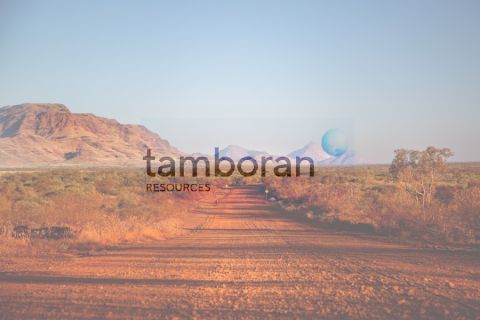If needing more capital to continue expensive deepwater Gulf of Mexico exploration, Devon Energy Corp. isn't the place one would think Ocean Energy Inc. would get it. Devon Energy has about $6.7 billion in debt and a debt-to-capitalization ratio of about 58%. And, to improve its own balance sheet, one wouldn't think Devon would turn to Ocean Energy, which has $1.8 billion of debt, some expensive deepwater bills on its horizon, and a debt-to-capitalization ratio of 51%. The ratio is improved remarkably from when the stock's price was about $10 a share. Not so long ago, Ocean's debt-to-cap ratio was much greater. (Of course, such was the financial profile of a lot of E&P companies in 1999.) But the difference in Devon and Ocean's bottom lines is just enough to matter to Devon's balance sheet, which will have an improved 52% debt-to-cap ratio upon merging with Ocean. A lot of the reduction will be due to the issuance of 73.4 million more shares to pay for the all-stock deal. (For more on the details of the deal, see "Company Briefs" in this issue.) While Devon's offer was only slightly higher than the day's market going rate for Ocean stock, there was already a good bit of hopefulness built into the share price. Devon's bid values Ocean's proved reserves at $1.49 per thousand cubic feet of gas equivalent or about $9 per barrel of oil equivalent-Standard & Poor's calls it "pricey." The price is remarkably higher than general-market fourth-quarter bids for U.S. reserves. Randall & Dewey Inc., Houston, calculates that prices approaching year-end 2002 averaged about $7.90 per BOE. That and higher reserve-acquisition prices may be the new standard, however. E&P companies say U.S. finding and development costs have a new floor of at least $1.25 per thousand cubic feet equivalent. And natural gas prices are forecasted to remain above $3 for years to come. Devon and Ocean each know something about rising F&D. Devon's average was $7.18 per BOE in 2002. Ocean Energy's was $12.11 per BOE. The higher cost is due in large part to its deepwater exploration and development expenses. That F&D cost is part of what brought Ocean to the table. Soon, the bills will belong to Devon. In a press release, Devon chairman Larry Nichols and Ocean chairman Jim Hackett explained why they like their deal so much. To paraphrase, Devon likes Ocean because it has important characteristics Devon doesn't have: a lower debt-to-cap ratio, huge Gulf of Mexico exposure and significant new production in its forecast. Ocean likes Devon for its huge sums of cash from operations that can fund these significant E&P plans, and for its first-class access to capital (made even better by Devon's new, reduced debt-to-cap ratio). This cash and additional capital will be essential to carry Ocean through its significant deepwater and other E&P plans. S&P and Fitch Ratings each liked the deal and have stable outlooks on Devon's debt rating. Moody's Investors Service isn't as happy. Devon's debt per BOE of proved developed reserves is already $6.25, its analysts say. Ocean looks better-$5.23 per BOE. Fitch Ratings says it is confident Devon will maintain its credit profile. "Devon has hedged enough production to basically fund its $2.5 billion capital budget for 2003 assuming the Ocean Energy transaction is completed. Given where commodity prices are now, management feels very comfortable that they will generate at least $800 million of free cash flow in the year which will likely be applied towards debt reduction." Look for large asset sales by Devon upon re-rationalizing its portfolio-it had made $1.5 billion of divestments last year. And then it may buy again. -Nissa Darbonne, Managing Editor
Recommended Reading
U.S. Shale-catters to IPO Australian Shale Explorer on NYSE
2024-05-04 - Tamboran Resources Corp. is majority owned by Permian wildcatter Bryan Sheffield and chaired by Haynesville and Eagle Ford discovery co-leader Dick Stoneburner.
Exxon Shale Exec Details Plans for Pioneer’s Acreage, 4-mile Laterals
2024-05-03 - Exxon Mobil plans to drill longer, more capital efficient wells in the Midland Basin after a major boost from the $60 billion Pioneer Natural Resources acquisition. Data shows that Exxon is a leading operator drilling 4-mile laterals in the Permian’s Delaware Basin.
Infrastructure Company Savage Acquires Houston’s Texon
2024-05-03 - Texon, a midstream service provider, will continue operations under its legacy brand.
1Q24 Dividends Declared in the Week of April 29
2024-05-03 - With earnings season in full swing, upstream and midstream companies are declaring quarterly dividends. Here is a selection of dividends announced in the past week.
Pitts: US, Qatar Face off in LNG ‘Olympics’
2024-05-03 - In the LNG exporting space, the U.S. is squaring off with its fiercest competitor, Qatar, with both countries expected to outpace Australia





